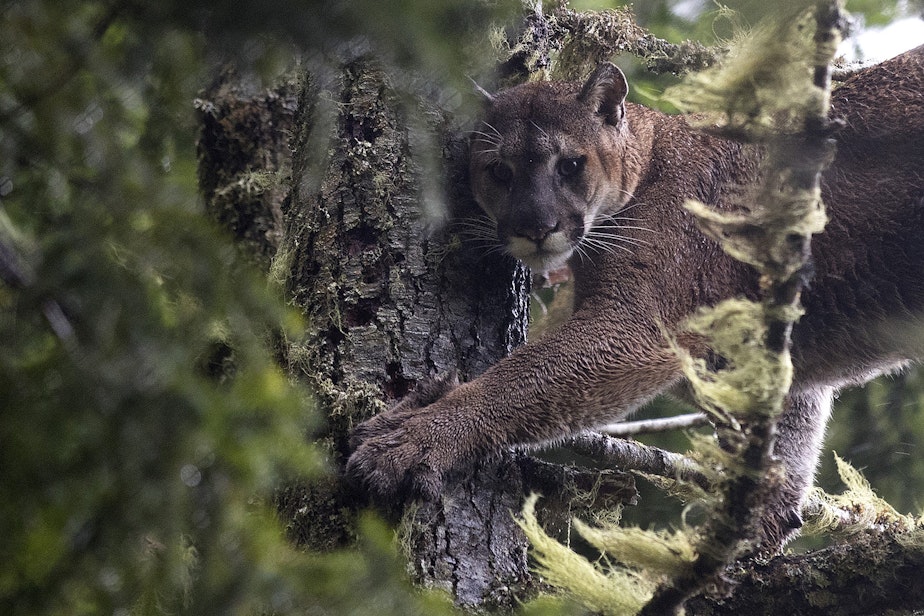In a battle of apex predators, Washington cougars are killing wolves at a surprising rate

Wolves may be an apex predator, but researchers in Washington recently noticed that they’re being attacked and killed by another carnivore at the top of the food chain: cougars.
In Washington, a recent and unique rise in wolf killings is leaving officials and researchers stumped. But the mystery involves more than the age-old rivalry between cats and dogs.
"Cougars and wolves have been sharing the landscape for a long time," said Kylie Mohr, who wrote about the issue for National Geographic. "Research shows that cougars and wolves kill each other throughout the West. But what's happening in Washington is more frequent in recent years."
In the last decade, there have been six documented killings of wolves by cougars in Washington state. However, that likely isn't the full picture, Mohr said.
"That's only what we know through radio collars, so it could be happening more to wolves that don't have any collars tracking them."
Sponsored
Wolves have been reintroduced throughout states in the Mountain West, and in states like Montana, Idaho, Wyoming, and Colorado, cougar attacks on wolves are being tracked. But Washington's numbers are unusual, and it's gotten the attention of wildlife officials.
"I wouldn't say they're worried, but they're definitely intrigued and monitoring it closely," Mohr said. "They really need to have more attacks happen in order to do a more rigorous analysis."
The telltale sign of a cougar attack on wolves is the presence of two puncture holes in their skull. Cougars also like to "cache" their kills, which means the remains are dragged and hidden for the cougar to return to later.
One hypothesis for Washington's spike in attacks is the craggy terrain that camouflages cougars, giving them more vantages from which they can attack lone wolves.
"It's not a problem, yet. It's more of just a fascinating phenomenon that's rare," Mohr said. "No intervention [is] planned at this time from my reporting, but there is definitely a lot of interest and a lot of desire to study it more if more cases happen, and if there's a larger sample size to do so."





